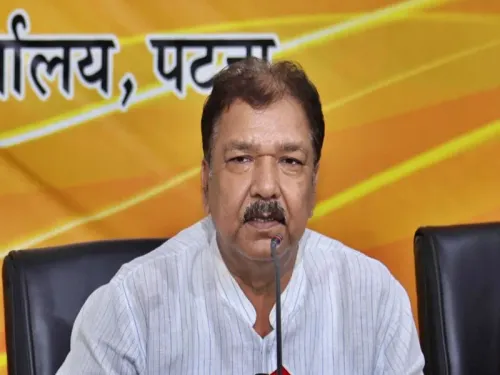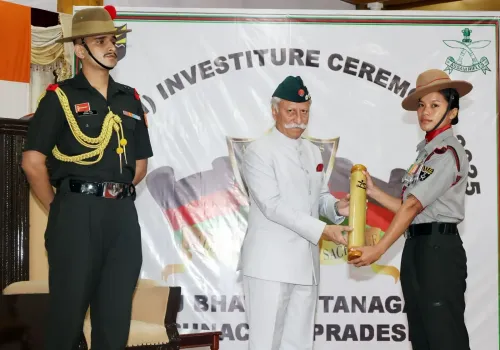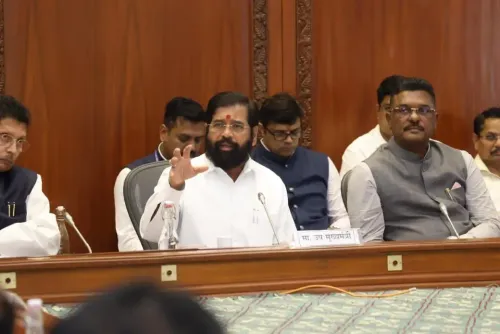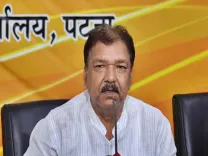Is Tejashwi Yadav Crying Foul Over the Timing of His Case?
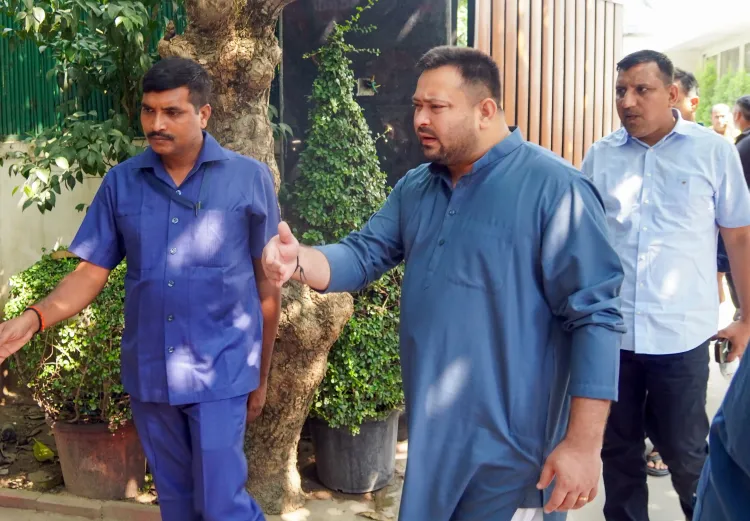
Synopsis
Key Takeaways
- Tejashwi Yadav claims political motivations behind his charges.
- The IRCTC case involves serious allegations of corruption.
- Upcoming elections could be influenced by the narrative of victimization.
- The Representation of the People Act plays a crucial role in electoral eligibility.
- Nitish Kumar's governance has received both praise and criticism over the years.
New Delhi, Oct 13 (NationPress) The de facto leader of the Rashtriya Janata Dal (RJD), Tejashwi Yadav, expressed his predictable outrage on Monday when a Delhi court established charges against him, his father Lalu Prasad Yadav, and mother Rabri Devi related to the Indian Railway Catering and Tourism Corporation (IRCTC) hotel land-for-job scandal.
He alleged that the case is driven by political motives, aiming to divert attention from the alleged failures of the Bihar government.
This case involves accusations that during his tenure as Railway Minister from 2004 to 2009 in the United Progressive Alliance government, Lalu and his family received valuable land in return for granting maintenance contracts for two IRCTC hotels to a private firm, violating regulatory protocols.
As the November Assembly elections approach, Tejashwi Yadav is dismissive of the 'Jungle Raj' accusations against his father's government in the 1990s, instead targeting current Chief Minister Nitish Kumar on issues related to corruption, declining law and order, and the absence of a developmental strategy.
Emotionally charged, he vowed to combat the ruling alliance as long as he lives. While rallying local sentiments, he criticized the Bharatiya Janata Party (BJP) and its leaders, asserting his identity as a 'true Bihari', stating that he does not fear 'Bahari' or outsiders.
Lalu Prasad Yadav has faced numerous criminal and corruption allegations over the years, resulting in both convictions and ongoing cases. His time in prison, coupled with advancing age and health issues, has limited his active political engagement.
In contrast, Nitish Kumar's administration, known for its intricate political trajectory and changing alliances, has garnered some public praise for its governance.
Beginning his major term in 2005 with the 'Sushasan' (good governance) initiative, he prioritized infrastructure enhancements, including roads, electricity, and increased school enrollment.
From 2010 to 2014, his focus shifted to law enforcement improvements and police reforms. Although he returned to power in 2015 with the support of the RJD-led Mahagathbandhan, he later severed ties and rejoined the BJP-led National Democratic Alliance (NDA).
Even after winning the 2020 elections, Nitish formed a new government with the RJD and its allies in 2022 but again returned to the NDA coalition. Tejashwi, who served as Deputy Chief Minister from 2015 to 2017 and again from 2022 to 2024 under Nitish Kumar, has not forgotten these political shifts.
Tejashwi has consistently criticized Nitish Kumar's inconsistencies and alleged mismanagement. He is now likely to portray himself as a martyr, suggesting he is being targeted to prevent his participation in the electoral process.
Notably, in 2013, Lalu was sentenced to five years in prison, resulting in the loss of his Lok Sabha seat and a ban on contesting elections during his imprisonment and for six years post-release.
According to Section 8(1) of the Representation of the People Act, 1951, individuals can be disqualified from elections if convicted of specific offenses, particularly those leading to imprisonment for six months or more.
This law stipulates that individuals found guilty of punishable offenses and sentenced to at least six months in prison will be barred from contesting elections, with disqualification beginning from the date of conviction and lasting six years after release.
With charges framed in the latest IRCTC case, trial proceedings will follow. The outcomes of earlier cases will depend on the status of appeals, bail conditions, and ongoing legal actions.
For Tejashwi, these are uncertain times as he aspires for leadership. The extent to which he can successfully depict a narrative of political persecution will become evident once the election results are released.

